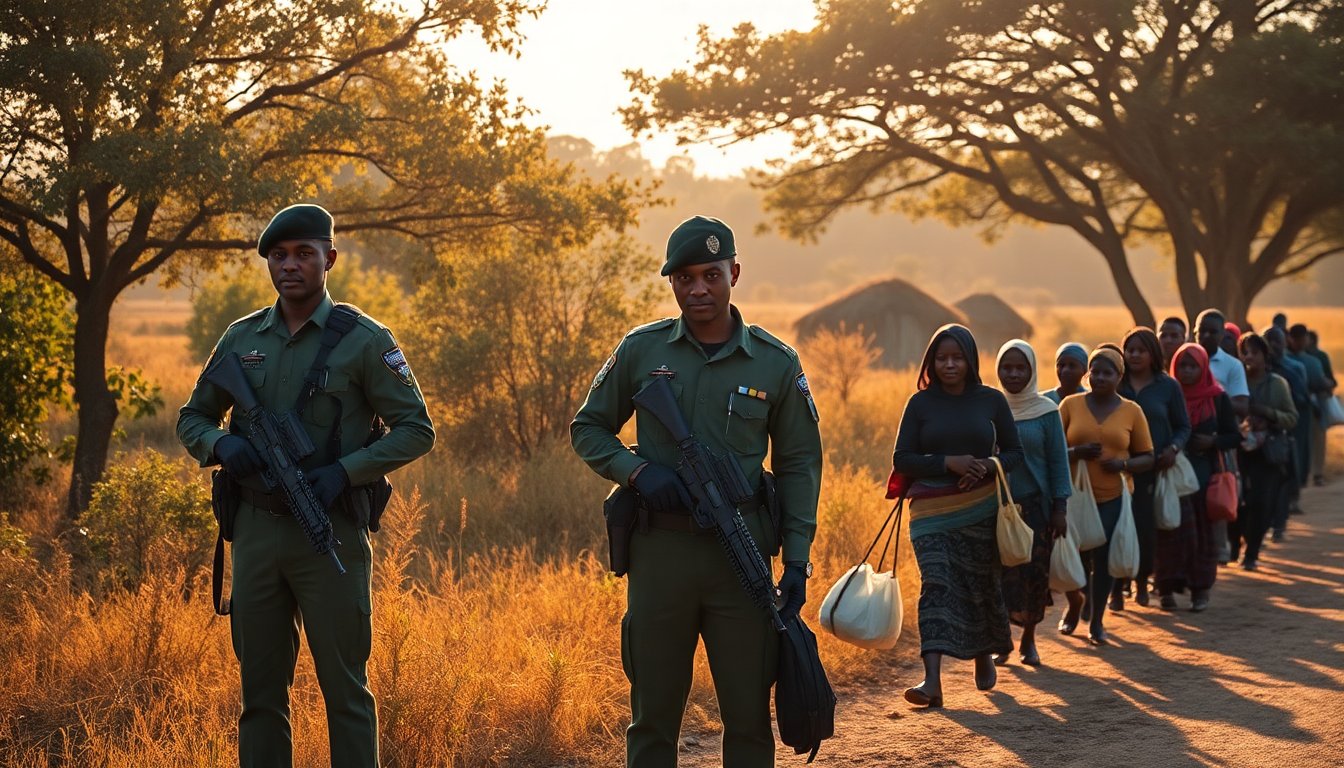Table of Contents
In a significant development, authorities in Ivory Coast have intensified border security measures due to a marked increase in refugees arriving from neighboring Mali. This surge is linked to a series of distressing attacks against civilians by armed groups operating in southern Mali. In response, the National Security Council (NSC) of Ivory Coast has emphasized that the safety of its citizens and the well-being of asylum seekers are top priorities.
Understanding the refugee crisis
The National Security Council (NSC) recently reported a significant increase in asylum seekers from Mali to Ivory Coast due to escalating violence. In response, the council has tasked its Executive Secretary with implementing measures to ensure proper registration of these refugees. This proactive strategy is designed to support individuals fleeing their homes in search of safety.
The role of armed groups in Mali
The ongoing crisis in Mali is deeply intertwined with the insurgency led by the Jama’at Nusrat al-Islam wal-Muslimin (JNIM), a group affiliated with al-Qaeda. For nearly a decade, JNIM has been engaged in a violent rebellion that has increasingly destabilized the region. Established in 2017, JNIM emerged from the merger of several militant factions, including al-Qaeda in the Islamic Maghreb. This group has extended its operations beyond Mali, impacting neighboring countries such as Burkina Faso, Niger, and Ivory Coast.
Recent developments and their impact
The situation in Mali has worsened as the Jama’at Nasr al-Islam wal Muslimin (JNIM) has escalated its attacks. The latest incident occurred in the town of Loulouni, situated only 50 kilometers from the Ivorian border. This assault has resulted in the displacement of hundreds of residents, further aggravating an already critical humanitarian crisis. The group has claimed numerous lives and imposed substantial economic pressure on the region, including a blockade that has hindered essential supplies to the capital, Bamako.
The humanitarian response
The government of Ivory Coast is addressing immediate security challenges while managing a significant humanitarian issue. The country currently hosts approximately 90,000 refugees from Burkina Faso. This influx is straining local resources and requires a coordinated humanitarian response. The National Security Council (NSC) has underscored the necessity of providing adequate support and protection to those fleeing violence.
Looking ahead
As instability continues in Mali, the Ivory Coast government is remaining vigilant. The Chief of the General Staff of the Armed Forces has been assigned to enhance security protocols along the northern borders to address potential threats. Moving forward, the government aims to maintain peace and stability while ensuring refuge for those in need.
The ongoing refugee crisis in West Africa reveals deep-seated security challenges affecting the entire region. As nations respond to rising militant activities, collaborative approaches are crucial in tackling the underlying factors of instability while supporting those displaced. This situation demands not only urgent security measures but also sustainable strategies focused on building peace and resilience for the future.


